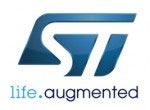Keynote Speakers
|
Morning Keynote Speaker
Future Trends in Automotive — Smart Systems and Sensors
|
|
 Ralf Schnupp Ralf SchnuppContinental Automotive GmbH
In this presentation, Dr. Schnupp tries to derive the needs for Microsystems from trends in the automotive industry. Visions for future mobility, products and systems contributing step by step to make driving more valuable as well as the according future requirements and challenges for automotive products and Microsystems are shown. Four main trends determine technology developments in the automotive industry: enhanced safety, environmental protection, increased connectivity, and affordable vehicles. Besides the vision of zero accidents, more and more effort is spent to make individual mobility more valuable: the vision of autonomous driving was created. To reach this vision, some preconditions need to be fulfilled like having robust and failsafe products, increased communication between systems, data handling in real-time and managing complexity in different regards. Together with limited resources in material and manpower coming along with the permanent request of affordability, trends and requirements for future Microsystems can be derived. Some examples are a higher degree of intelligence in Microsystems, increased redundancy, or the challenge of scalability versus variant reduction. Dr. Ralf Scnupp's Bio
Dr. Ralf Schnupp studied physics at the university Erlangen-Nuremberg, Germany, focusing on solid-state and semiconductor physics. After receiving his diploma-degree in 1996, he joined the Fraunhofer-Institute of Integrated Circuits in Erlangen. Parallel to his PhD work entitled “backside contacted diamond-like carbon interdigited arrays for bioelectronic applications”, he lead a research group for microsystems technology.
In 2001, Dr. Ralf Schnupp joined the automotive supplier Continental AG working in the purchasing department in different locations and for several Business Units: Passive Safety, Electronic Brake Systems, Driver Assistance Systems, and Sensorics. Followed by a period of 18 months in Business Controlling, he gained experience in finance. With the merger between Continental and Siemens VDO end of 2007, he received the opportunity to lead a product line called “Segment Inertial Sensors”. Since the automotive market showed a clear trend of integration of ESC-sensors into airbag control units, Division Chassis and Safety decided to merge the business fields of passive safety and inertial sensors. From 2012 on, Dr. Schnupp is taking care of the combined “Segment Occupant Safety and Inertial Sensors”, headquartered in Regensburg, Germany, as part of the Business Unit Passive Safety and Sensorics.
|
|
|
Afternoon Keynote Speaker
Vision for Implanted Medical Devices Healthcare Solutions and Technical Challenges
|
|
|
Advanced Research Director, SORIN CRM within Cardiac Rhythm Management business unit
SORIN GROUP In his presentation, Renzo Dal Molin will present his vision for the future of the microelectronics medical industry including the main drivers of growth, challenges, and technologies needed to achieve success. MEMS has been used in implanted medical devices since the 1980s. Renzo Dal Molin has been a key player in the use of MEMS in pacemakers from the beginning until today. He will explain the evolution and the needs and the challenges he faced designing and developing prototypes in the production of MEMS for implanted medical devices. Renzo Dal Molin's Bio
Renzo Dal Molin is the Director of Advanced Research for SORIN CRM which Cardiac Rhythm Management Business Unit of SORIN GROUP. He is responsible for advanced research mainly conducted in national and european projects. His scope is to bring innovation in pacemakers, implantable sensors and defibrillators, active implantable medical devices communication and home monitoring systems. He is Vice Chairman for EPoSS (European Technology Platform on Smart Systems Integration) & co chairman of Working Groups Smart Systems for Healthy Living and Applied Micro-Nano-Bio Systems He is very active in standardization as he was involved in ECC reports 149 and 150 published by the European Communications Office and rapporteur of ETSI standards EN 301 559 and EN301 489 - 35 EMC for LP-AMI. He has a 32 years’ experience in the biomedical industry. He obtained his masters in Electrical Engineering and Biomedical Engineering in 1979 from ESSTIN and University of Nancy. He then occupied in SORIN CRM different positions like pacemaker or defibrillator project manager, integrated circuits design manager. He holds more than 20 US and European patents and his author of 15 publications. Sorin CRM is now in third position in Europe and second position in Japan in the treatment of slow cardiac rhythm disorders. SORIN GROUP is a global medical device company and a leader in the treatment of cardiovascular diseases 3,750 employees in the world, World Leader in Cardiopulmonary with a 35% market share, worldwide, #2 Heart Valve Company in Europe, listed on the Milan Stock Exchange |
|













